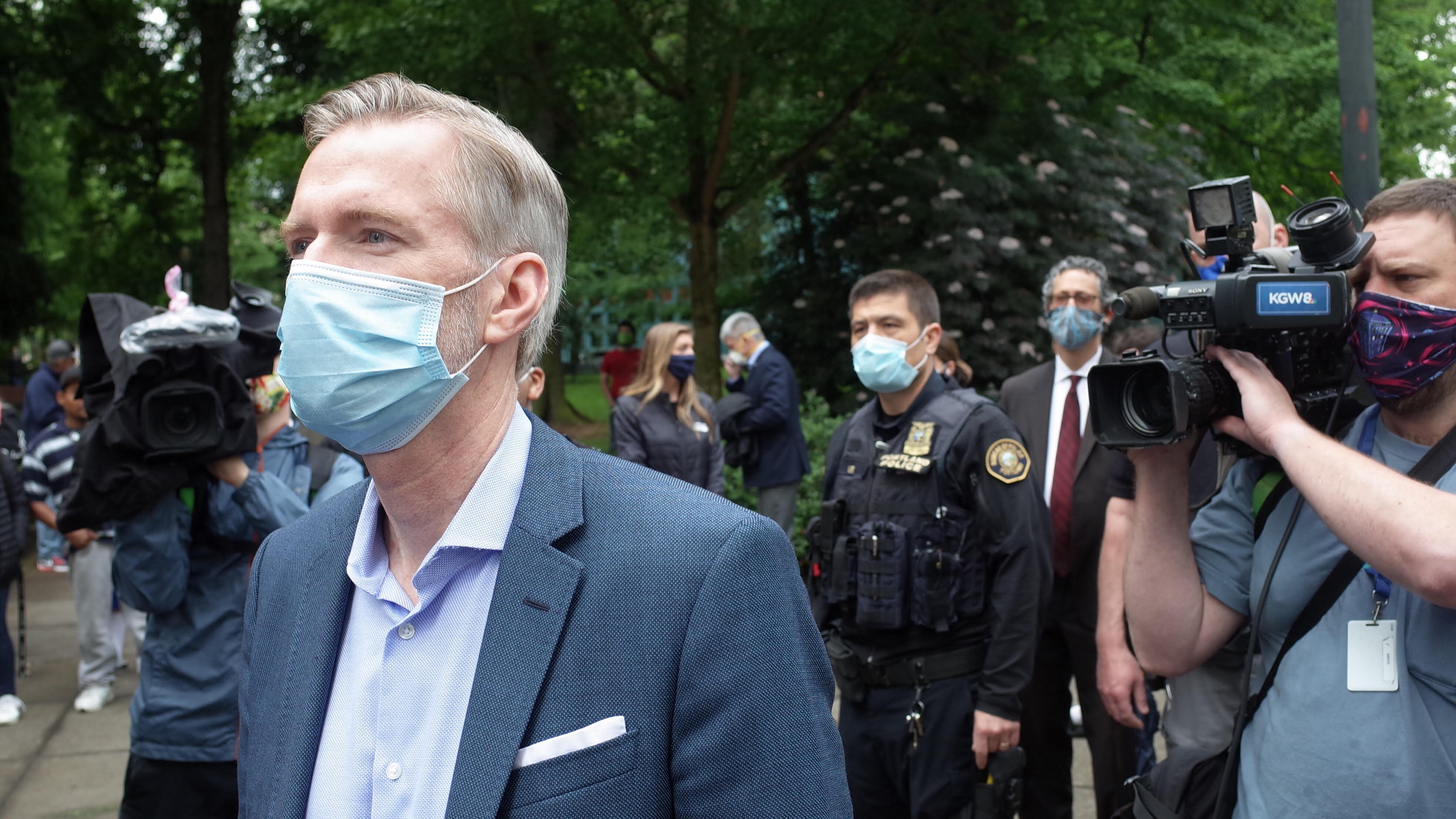At an early morning press conference Saturday, Mayor Ted Wheeler attempted to thread the needle between professing understanding of what motivates protesters of police violence and condemning the rioting and property destruction in Portland last night.
"I felt conflicted in many ways," he said. "There was a pain that erupted into violence last night….What happened in Portland last night and across the country did not happen in a vacuum."
"I don't condone what happened in Portland last night," Wheeler added. "I do not believe that violence or vandalism is the means to a political end….I don't condone what happened in Portland last night, and I do not tolerate it. But there's more, and here's the important part of what is a deeply moral conflict. This isn't just about damage or graffiti or fires or broken storefronts or lost product."
He broke down in emotion while speaking about the failure of political institutions to protect black men.
It was a softer note than Wheeler struck in his late-night posts to Twitter, where he expressed a frustration bordering on fury.
"ENOUGH," he wrote at 11:49. "I had to leave Portland today because my mother is dying. I am with family to prepare for her final moments. This is hard, this is personal, but so is watching my city get destroyed."
He amplified his apparent disgust in a later tweet.
"This isn't calling for meaningful change in our communities, this is disgusting," he wrote at 2:46 am.
There are difficult politics to the moment for Wheeler, a wealthy white man who serves as commissioner of a police force that has shot unarmed black men. The mayor has previously come into conflict with police accountability advocates over his failure to deliver on reforms.
Joining Wheeler at the press conference was City Commissioner Jo Ann Hardesty, the first black woman elected to Portland City Council and perhaps the city's foremost advocate of criminal justice reform. She had no such political land mines to avoid, and she did not hold back in her condemnation of looting and rioting.
After praising the peaceful protesters, she blamed a small group of people intent on destruction.
"What happened last night had nothing to do with black America; it was not about standing up for black people's rights," she says. "I want those people prosecuted. I want them found. I will help go through the video if need be."
Hardesty also notably praised the police work through the night. "As someone who is a strong, long-term critic of the police, I actually think they did an excellent job last night," she said.
She also criticized the media for focusing questions on policing of the riot. "This is about how do you heal a community that has consistently been damaged over and over and over again," she said.
Wheeler's challenger in the fall election, Sarah Iannarone, went further than the mayor in criticizing police violence, directly naming black men who have been shot by Portland police.
"Violence perpetrated by those who are supposed to 'protect and serve' is not confined to other municipalities; it occurs here in Portland regularly," she said in a statement. "These images remind us all of the deaths that have occurred in our city at the hands of the police, such as Quanice Hayes, Terrell Johnson, Kendra James, Keaton Otis, Aaron Campbell, Andre Gladen and too many more. These deaths must stop and should be the priority of our leaders."
Iannarone, who cleaned up graffiti along Martin Luther King Jr. Boulevard in Northeast at black-owned businesses, also criticized the property damage.
"This does not honor the victims nor reflect who we are as a community," she said. "This destruction must end. But for it to end, we need visible leadership, deescalation, actual local reforms, and a sense of community that has been crumbling in recent years."

